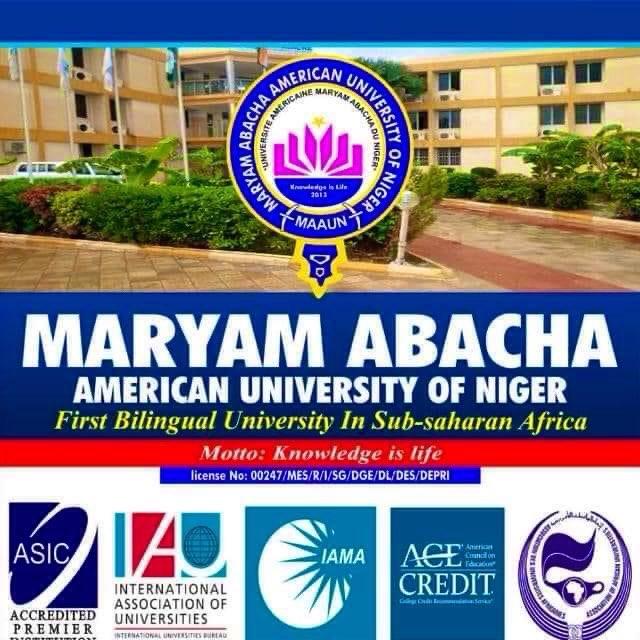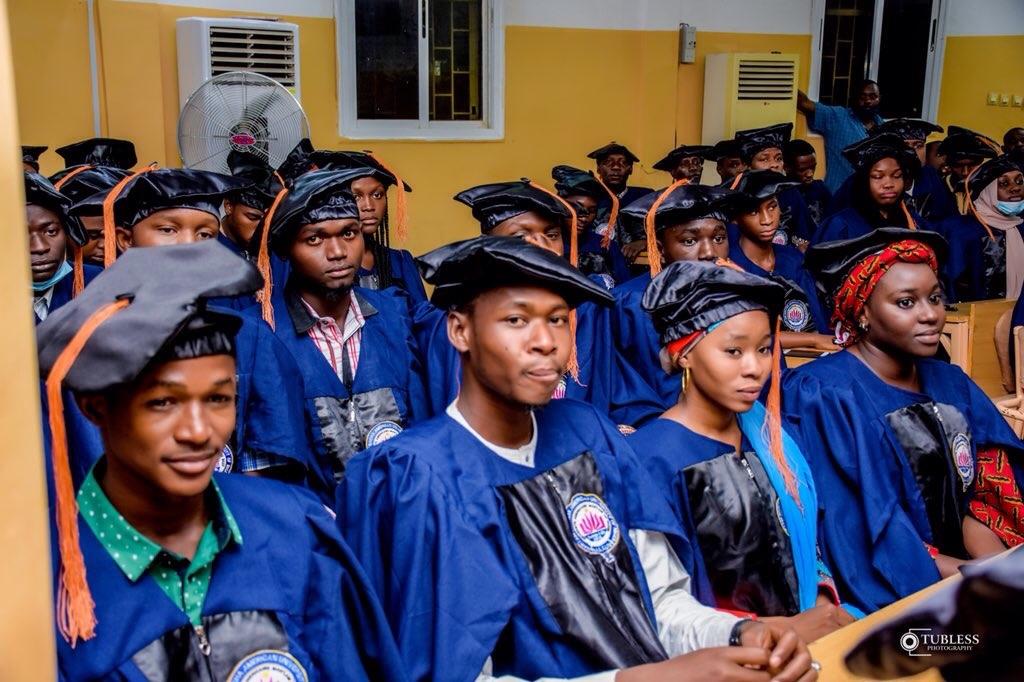By Djamila Amer
Located in the sunnier climes of West Africa, developing nation Niger may be called one of the poorest in the world and ranked 167 out of 169 countries in the 2010 United Nations (UN) Development Index, but, if there is ever a country that has leveraged its poverty for global assistance, it is Niger.
Officially the Republic of Niger, a landlocked country sharing its southern border with Nigeria and Benin, attracts global aid and support from many countries and international Non-Governmental Organisations (NGOs). The nation is the centre of several development initiatives in the sectors of environment, agriculture, military advancement etc. USAID’s Bureau for Humanitarian Assistance provides myriad support in Niger through UN agencies and non-governmental organization partners. They prioritise humanitarian aid, particularly food assistance, to support internally displaced persons and host communities.
Strategic partnerships between the Republic of Niger and big economies such as France and the United States, as well as emerging economies, such as China and India, have had a positive impact on the country. Niger is Africa’s most important uranium ore exporter and like other African countries, Niger is benefitting from the global demand of African oil, gas and mineral resources.
After decades of political unrest and ongoing insecurity, the country is advancing and meeting its developmental goals. Triumphing over the constant risk of violence, several nations have embassies in Niger. Local and international organisations have managed to adapt their work to bring much-needed aid and opportunities to communities.
In the health sector, specialist hospitals have been established to tackle healthcare challenges. The Republic of Niger has a fairly developing real estate sector. Some housing divisions are emerging with backing from notable institutions including The African Solidarity Fund (ASF), based in Niamey, Niger, which partners with Shelter-Afrique, a Kenyan housing development organisation.
Niger may be a developing nation but its ancient heritage, and a rich cultural tradition that has stood the test of time makes it a budding travel destination. A growing number of top-rate hotels and event centres in some of its 8 regions makes Niger the new hub for many international conferences in the areas of agriculture, climate change and law, with the African Bar Association (AfBA) holding its 2021 conference in Niamey, Niger.
In all these developmental goals happening in the Republic of Niger, one must appreciate the exceptional socio-economic role played by the Nigerian government and Northern Nigerians especially the elites in the advancement of Niger. The country has greatly profited from its Hausa and Fulani history; 70 per cent of the population of Republic of Niger are Hausa-Fulaniis, many of those in the Maradi region having ancestors from Katsina state Nigeria, home of President Muhammadu Buhari.

Nigerians contribute a huge part in trade and investments in Niger, especially in Maradi, the economic capital and one of Niger’s most economically prosperous cities. They own popular hotels and restaurants, construction and manufacturing companies, schools and universities like the Maryam Abacha American University of Niger (MAAUN) Maradi. Established in 2013 in honour of former First Lady of Nigeria, Hajia Maryam Abacha, MAAUN is the first English-speaking university in the Republic of Niger, and the first bilingual university in Sub-Saharan Africa. The university has a great number of Nigerian youths as students.

Many roads from northern Nigeria lead to Niger. From Sokoto state, Nigeria, to the capital Niamey, Niger is 7 hours by road. In Kebbi state is the border between Nigeria and Niger Republic, with the extraordinary division of the town Dole Kaina where one half of the town is in Kebbi State of Nigeria, while the other falls into Dosso State of Niger. One part of the Dole Kaina town is administered in English and the other in French!
An adventurous traveller could venture a five-hour’s road trip from Kano state, Nigeria to Maradi city Niger via the Kano-Kankia-Katsina road network. Many prefer to use the Kano-Daura border; Daura in Katsina state is the hometown of Nigeria’s outgoing President, Muhammadu Buhari. A two and half hour’s drive or less, some 260km from the town of Daura leads to the bustling city of Zinder, south-central Niger and the country’s second-largest city. Zinder, one of the eight regions of Niger also has an international airport for easy travel and cargo haulage to and fro Nigeria and other parts of the world.
Zinder was under the former Bornu empire till the mid-19th century. Today, it benefits from its neighbouring regions populated by Hausa farmers and nomadic Fulani. The region lies in the centre of an important peanut (groundnut) producing region and is a major processing centre and market, with a groundnut-processing mill, a millet-flour mill, a tannery, and a thermoelectric-power plant.
More than any other administration in the government of Nigeria, the presidency of Muhammadu Buhari, has brought enormous economic and infrastructural development to the Republic of Niger, with the vision of promoting the policy of “Africa as the centrepiece of Nigeria’s foreign policy”. Nigeria is committed to at least $4bn of projects in Niger and this has brought growing dissent from many Nigerians.
Some say President Muhammadu Buhari’s investments in Niger are that of an astute leader keen on investment opportunities; others criticise him for elevating family and ethnic ties. Buhari had said in an interview that the expansion of infrastructure to the neighbouring Republic of Niger was to ensure good neighbourliness that would halt the spread of Boko Haram insurgents in the country. He, however, admitted that he had first cousins from Niger Republic.
In March 2021, President Muhammadu Buhari was honoured in Abuja, Nigeria with Republic of Niger’s highest national award, Grand Croix Des Ordre National Du Niger, presented by former Nigerien President Mahamadou Issoufou. Speaking at the occasion, President Buhari said, “Nigeria-Niger relations are based on a long common border and shared cultural and historical roots. Relations between the two countries have, over the years, been very cordial. There is a spirit of good neighbourliness between us.”
In July 2018, Nigeria and Republic of Niger signed a $2bn deal to build an oil refinery in Niger, with connecting pipeline to bring crude oil from Niger’s oilfields in the Ténéré desert, carrying heavy crude, laden with high sulfur content. Many Nigerians who had supported Buhari’s plan to overhaul Nigeria’s poor oil refineries, wondered at this Memorandum of Understanding (MoU) signed between Nigeria and the Niger Republic on the purchase, transportation, and storage of petroleum products. Niger Republic’s Soraz Refinery in Zinder, has an installed refining capacity of 20,000 barrels per day.
In February 2021, President Muhammadu Buhari announced that Nigeria was embarking on a $1.9bn Nigeria-Niger Republic construction of 284 kilometres standard gauge railway project with 12 stations running from Kano in the northwest Nigeria to Maradi in south-central Niger.
The Federal Executive Council of Nigeria had in February 2021 also approved contracts for the construction of two roads from Sokoto and Jigawa States, Nigeria, up to its borders with the Republic of Niger at a total cost of about N29.2 billion. In June 2021 during an interview on Nigeria’s Arise Television, President Buhari defended his decision to construct railways and roads extending into Niger Republic. “Niger has discovered oil, as you know. We hope they will be fine when we take the rail to Maradi and take all their exports through Maradi rather than through the Benin Republic,” he said in response to why he was investing so heavily in ties with Niger.
President Buhari in August 2022 was also reported to have directed Nigeria‘s Minister of Finance, Budget and National Planning, Zainab Ahmed to release the sum of N1.14billion for the purchase of 10 Land Cruiser Jeeps, to the government of Republic of Niger, as operational vehicles. This was based on the requests for support by the government of Niger.
Industry experts raised concern over what they described as strategic interest between the president and Niger, going by these key infrastructure projects. Many Nigerians feel deprived of their resources and wealth as President Buhari develops Republic of Niger, perhaps because a part of his ancestry is traceable to that country.
Nigerians took their outrage to social media asking why President Buhari’s government didn’t care to connect major industrial cities and regions in Nigeria with good road networks and a thriving rail system but keeps playing Father Christmas or Big Brother Africa to Republic of Niger while the country faces dire socio-economic challenges. “Charity begins at home; fix Nigeria’s declining educational system first,” one youth wrote on Twitter. Others called for diversification of the private sector through expanding road network, overhauling of the power sector, and better security of lives and property.
Barely 38 days to the end of his eight-year tenure, President Muhammadu Buhari, in April 2023 declared that he will relocate to Niger Republic if he is bothered after leaving office. Speaking to a gathering at the presidential villa, Buhari said he “can’t wait to go home to Daura” and “if they make any noise to disturb me in Daura, I will leave for the Niger Republic.” Many Nigerians took his statement as a lack of commitment to Nigeria and the reason for Buhari’s excessive investments in Republic of Niger. Some Nigerians recalled his statements in the 2021 interview he gave to local broadcaster Arise Television, “I spoke to one Frenchman and I said to him, ‘You people in 1885 sat down with a ruler and pencil, and drew the line (in reference to the Nigeria-Niger border)’. I have first cousins in Niger. There are Kanuris, Hausas, Fulanis in Niger Republic, the same way there are Yorubas in Benin,” said Buhari.
Beyond the ancestral ties, Nigeria remains a key trade partner for Republic of Niger. The cities in southern Niger and northern Nigeria have been linked in the Trans-Saharan trade dating back to medieval times. Nigerian cities like Kano and Katsina have long been the southern terminus of trade networks that support much of the Nigerien economy. Nigeria benefits from agricultural trade and sales, especially Nigerien cattle routed to Nigerian markets, while the most direct routes from Niger to foreign trade are through Nigeria.
Indeed, it’s all in the Republic of Niger; rich culture, ongoing infrastructural development, progress in the area of peace and security. Niger has numerous opportunities that, when fully utilised, would eradicate its remaining political, social, and economic difficulties.
It is no wonder Nigeria’s President Muhammadu Buhari considers Niger a splendid retirement getaway. The sixth president of the United States, John Quincy Adams once said, “There is nothing more pathetic in life than a former president,” This may be true, but President Buhari is surely making plans on living a peaceful and contented life after his presidency. When the national and global spotlight dims on Buhari, he may be found in Daura or Republic of Niger, taking rejuvenating walks, eating delicious local foods and abundant fruits, being a doting grandfather and enjoying close proximity to his extended family.
President Buhari like his predecessors, might also take up the role of adviser and elder statesman to the region and beyond. Needless to say, the Republic of Niger will always remember his presidency with gratitude.




